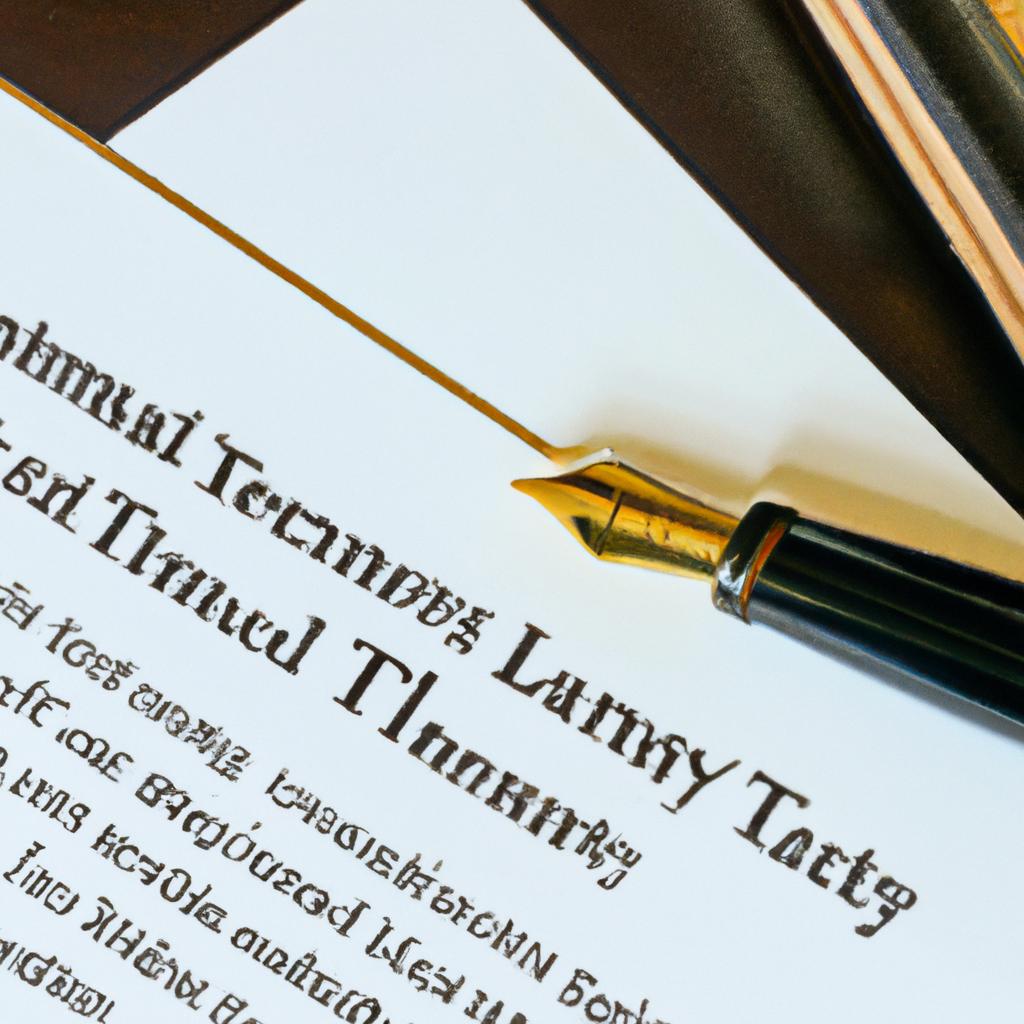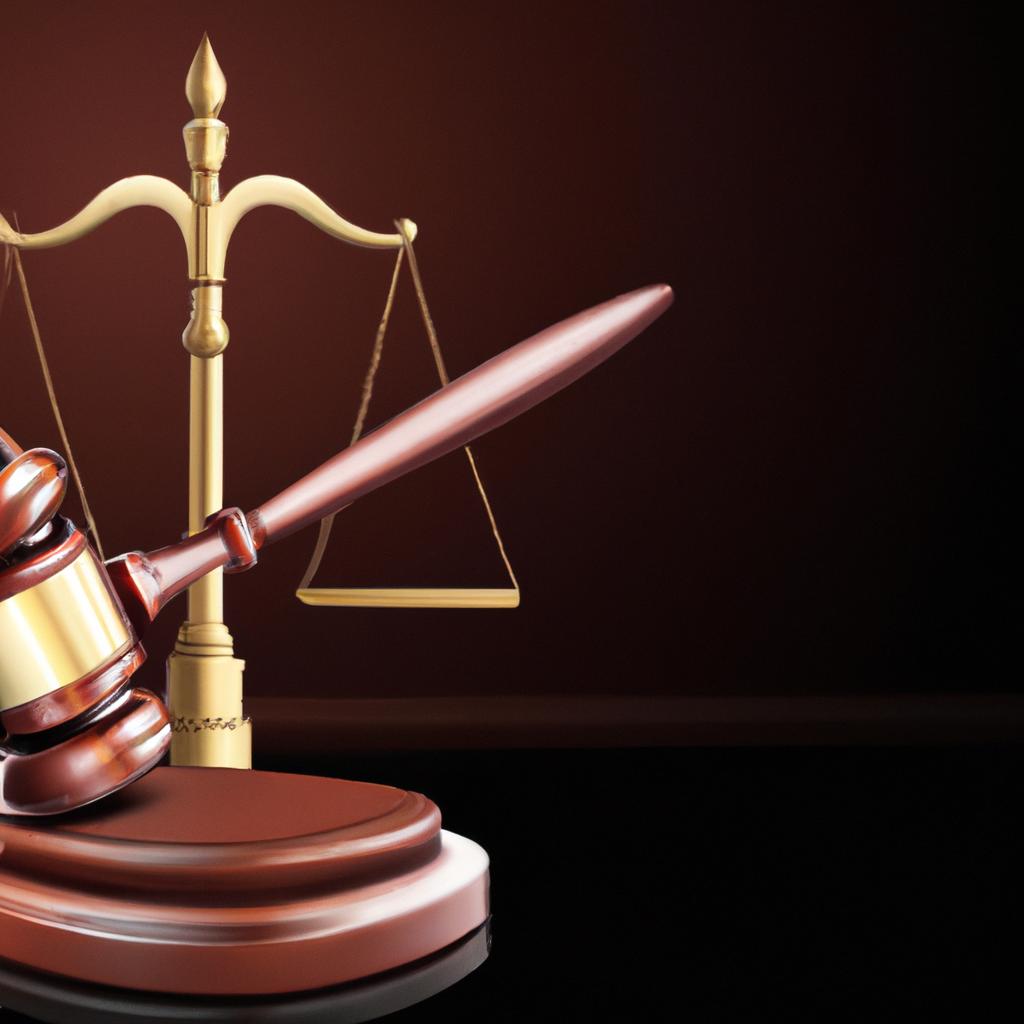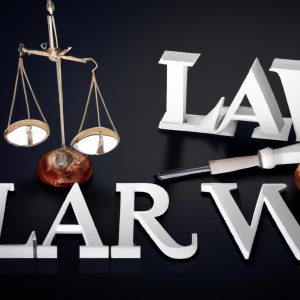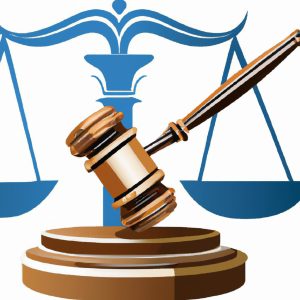In the intricate realm of estate administration, the issuance of a Letter of Testamentary stands as a crucial document that bestows powers upon individuals to act on behalf of a deceased person’s estate. As seasoned practitioners in the field of estate planning, probate, elder law, Wills, and trusts, the Morgan Legal Group, situated in the bustling streets of New York City, understands the significance of this legal instrument in navigating the complexities of posthumous affairs. In this article, we delve into the nuances of obtaining a Letter of Testamentary and its pivotal role in the probate process.
Understanding the Purpose of a Letter of Testamentary
When someone passes away, their estate needs to be properly handled in accordance with the law. A Letter of Testamentary is a crucial legal document that grants authority to the executor of an estate to act on behalf of the deceased individual. This document is issued by the probate court after the Last Will and Testament has been validated.
is essential for anyone involved in the probate process. This document allows the executor to perform important tasks such as collecting assets, paying debts, and distributing property to beneficiaries. Without a Letter of Testamentary, the executor does not have the legal authority to carry out these duties.

Key Components and Requirements for Drafting a Valid Letter of Testamentary
When drafting a valid Letter of Testamentary, it is crucial to include key components and adhere to specific requirements to ensure its legality and effectiveness. These essential elements must be meticulously crafted to accurately reflect the wishes and intentions of the deceased individual.
Some important components to consider when drafting a Letter of Testamentary include:
- Identification of the deceased individual: Clearly state the full name, date of birth, and date of death of the deceased individual.
- Designation of the executor: Clearly designate the individual who will be responsible for administering the estate and carrying out the wishes outlined in the will.
- Listing of assets and beneficiaries: Provide a detailed inventory of the deceased individual’s assets and specify the beneficiaries who are entitled to receive them.

Navigating the Probate Process with a Letter of Testamentary in New York
When navigating the probate process in New York, having a Letter of Testamentary can be a crucial document to have in hand. This legal document serves as proof that the named executor has the authority to act on behalf of the deceased’s estate. With a Letter of Testamentary, the executor can begin the process of distributing assets, paying debts, and handling other important matters related to the estate.
Obtaining a Letter of Testamentary can be a complex process, but with the guidance of experienced estate planning attorneys like Morgan Legal Group, the process can be streamlined and simplified. Our team can assist you in preparing the necessary paperwork, filing the petition with the Surrogate’s Court, and navigating the legal requirements to obtain the Letter of Testamentary. With our expertise in probate and estate planning law, we can help you confidently navigate the probate process and ensure that the wishes of the deceased are carried out efficiently and effectively.

Expert Guidance on Maximizing the Benefits of a Letter of Testamentary
When it comes to the intricacies of a Letter of Testamentary, seeking expert guidance is crucial to ensure that you are maximizing the benefits that come with this important legal document. At Morgan Legal Group, our team of experienced lawyers specializes in estate planning and probate law, providing our clients with the knowledge and support needed to navigate the complexities of the probate process.
With our guidance, you can rest assured that your loved one’s estate will be handled with care and precision. From understanding the responsibilities that come with being named as an executor to ensuring that all assets are distributed according to the terms of the Will, our team is here to provide you with the support you need every step of the way.
Q&A
Q: What is a letter of testamentary?
A: A letter of testamentary is a legal document issued by a probate court that gives an executor the authority to handle the estate of a deceased person.
Q: Who can request a letter of testamentary?
A: Typically, the executor named in the deceased person’s will can request a letter of testamentary. If there is no will, a court may appoint an administrator to handle the estate.
Q: What is the purpose of a letter of testamentary?
A: The purpose of a letter of testamentary is to confirm the executor’s authority to gather and distribute the deceased person’s assets according to their will or state laws.
Q: How long does it take to obtain a letter of testamentary?
A: The timeline for obtaining a letter of testamentary can vary depending on the complexity of the estate and any potential challenges to the will. It can take several weeks to several months.
Q: Can a letter of testamentary be contested?
A: Yes, a letter of testamentary can be contested if there are disputes over the validity of the will or the appointment of the executor. This can lead to legal proceedings and delays in the estate settlement process.
Q: Is a letter of testamentary required for all estates?
A: In some cases, a letter of testamentary may not be required if the deceased person’s assets are held jointly with a surviving spouse or if the estate is of minimal value. It is best to consult with a probate attorney to determine if a letter of testamentary is necessary.
The Conclusion
In conclusion, the letter of testamentary serves as a crucial document in the settling of an estate, providing the executor with the necessary authority to carry out their duties. By obtaining this document, the executor can navigate the complex legal processes involved in administering the deceased’s estate with confidence and clarity. As always, seeking the guidance of a knowledgeable estate attorney can help ensure that the executor fulfills their responsibilities in accordance with the law. With the letter of testamentary in hand, the executor can proceed with the necessary tasks to honor the final wishes of the deceased and bring closure to the estate. So, when it comes to the letter of testamentary, remember that proper planning and legal guidance can make all the difference in the world.
 Understanding the Importance and Purpose of a Letter of Testamentary
Understanding the Importance and Purpose of a Letter of Testamentary
If you have recently lost a loved one, you may have heard the term “letter of testamentary” thrown around. But what exactly is it, and why is it important? In this article, we will explore the purpose and benefits of a letter of testamentary, as well as provide valuable information on the process of obtaining one.
What is a Letter of Testamentary?
A letter of testamentary, also known as letters testamentary or letters of administration, is a legal document that grants the executor of an estate the authority to act on behalf of the deceased. This authority is necessary in order for the executor to efficiently and effectively carry out their duties in managing and distributing the estate’s assets.
In order to obtain a letter of testamentary, the executor must submit a petition to the court, accompanied by the will and death certificate of the deceased. This process can vary depending on state laws, so it is important to consult with an attorney or legal professional for guidance.
What is the Purpose of a Letter of Testamentary?
The primary purpose of a letter of testamentary is to provide the executor with legal authority to manage the estate and carry out the wishes of the deceased as outlined in their will. Without this document, the executor would not have the legal standing to act on behalf of the estate.
Additionally, a letter of testamentary also serves as proof to financial institutions, government agencies, and other involved parties that the executor has the authority to act on behalf of the estate. This can facilitate the transfer of assets, accessing accounts, and settling any outstanding debts or obligations.
Benefits of Having a Letter of Testamentary
Having a letter of testamentary can provide numerous benefits for both the executor and the heirs of the estate. These benefits include:
1. Legal Protection: By obtaining a letter of testamentary, the executor is granted legal protection in their role. This document designates them as the official representative of the estate, minimizing the risk of disputes and legal challenges.
2. Streamlined Process: With a letter of testamentary, the executor is empowered to take care of various legal requirements and tasks related to the estate without the need for court approval. This can save time and simplify the process of settling the estate.
3. Efficient Distribution of Assets: As the primary purpose of a letter of testamentary is to authorize the executor to handle the estate’s assets, having this document can make the distribution of assets to heirs and beneficiaries more efficient and straightforward.
Tips for Obtaining a Letter of Testamentary
Obtaining a letter of testamentary can be a complex and time-consuming process, but following these tips can help make it smoother and more efficient:
1. Consult with an Attorney: The process of obtaining a letter of testamentary can vary depending on state laws, so it is important to seek guidance and assistance from a knowledgeable attorney or legal professional.
2. Gather Relevant Documents: In order to submit a petition for a letter of testamentary, the executor will need to provide various documents, such as the deceased’s will and death certificate. Having these documents readily available can help expedite the process.
3. Be Prepared for Court: In some cases, the executor may need to appear in court to be appointed as the legal representative of the estate. It is important to be prepared to address any questions or concerns the court may have.
Real-Life Example of a Letter of Testamentary
To better understand the process and importance of a letter of testamentary, let us consider a real-life example. Sarah’s mother recently passed away, leaving behind a sizeable estate. Sarah’s father had passed away years ago, and her mother’s will named Sarah as the executor of her estate.
Sarah consulted with an attorney, who helped her draft a petition for a letter of testamentary and submit it to the court. After a brief court appearance, Sarah was appointed as the executor and received her letter of testamentary.
With this document in hand, Sarah was able to efficiently handle the estate’s assets, including selling her mother’s home and distributing various belongings and assets to family members and beneficiaries. The letter of testamentary also provided Sarah with the legal protection and authority she needed to fulfill her duties.
In conclusion, a letter of testamentary is an essential document in the estate administration process. It provides the executor with legal authority to manage the estate and distribute assets as outlined in the will. While obtaining this document may require some effort and legal guidance, it ultimately can make the entire process smoother and more efficient, benefiting both the executor and the heirs of the estate.






